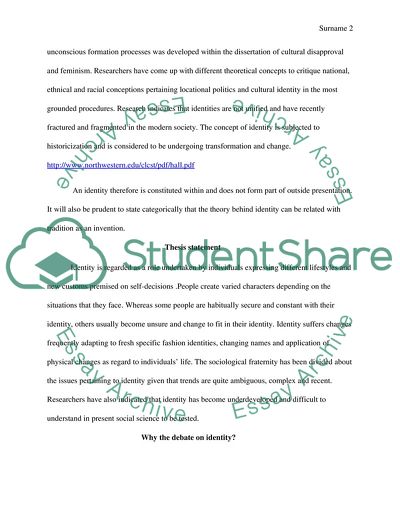Cite this document
(“Art and identity Essay Example | Topics and Well Written Essays - 2000 words - 1”, n.d.)
Art and identity Essay Example | Topics and Well Written Essays - 2000 words - 1. Retrieved from https://studentshare.org/sociology/1635363-art-and-identity
Art and identity Essay Example | Topics and Well Written Essays - 2000 words - 1. Retrieved from https://studentshare.org/sociology/1635363-art-and-identity
(Art and Identity Essay Example | Topics and Well Written Essays - 2000 Words - 1)
Art and Identity Essay Example | Topics and Well Written Essays - 2000 Words - 1. https://studentshare.org/sociology/1635363-art-and-identity.
Art and Identity Essay Example | Topics and Well Written Essays - 2000 Words - 1. https://studentshare.org/sociology/1635363-art-and-identity.
“Art and Identity Essay Example | Topics and Well Written Essays - 2000 Words - 1”, n.d. https://studentshare.org/sociology/1635363-art-and-identity.


